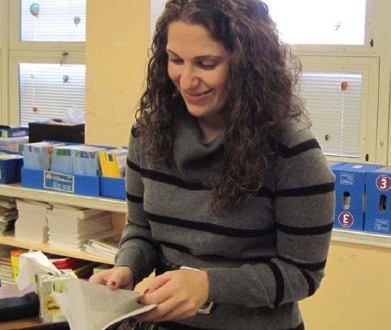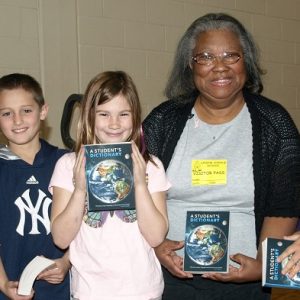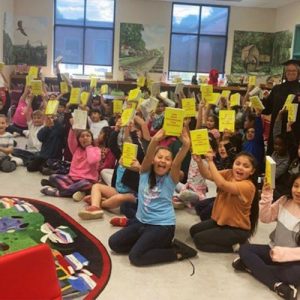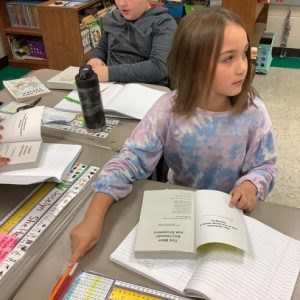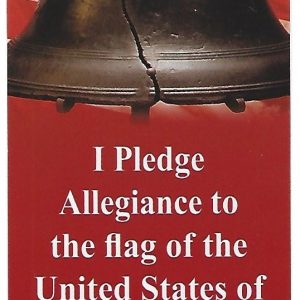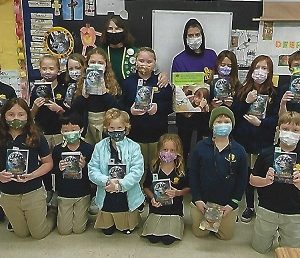Dictionary distribution begins at two schools
The Jersey City Rotary Club last week began the distribution of dictionaries to 3,000 children in Jersey City’s public school district. The distributions began at Martin Luther King School (Public School #11) and at the Cornelia F. Bradford School (Public School #16) last Thursday.
Accompanied by Mary K. Truesdale, the school’s Assistant Principal, Dianne F. Vasquez, James J. Miller, Jr. and Stephen Stamos provided paperback dictionaries to children at Public School #11, while Henry L. Jaszewski gave dictionaries to children at Public School #16. Additional dictionaries are to be provided to children of 22 other elementary and grade schools in the city.
In visits to three classrooms of third-grade pupils at Public School #11, Dianne explained to the children the mission of Rotary and the meaning of volunteerism. She also demonstrated to them how to use a dictionary by asking them to look up the definition of the word “community.”
At Public School #16, meanwhile, Henry asked the children if they knew the meaning of the word “palindrome” – a derivation of the Greek word “palindromes" – which means “running back again.” A palindrome is a word such as “racecar”, “deed”, or “level”, which reads the same backward and forward.
Like Dianne at Public School #11, Henry also demonstrated to the children the purposes and use of dictionaries.
The books were purchased from The Dictionary Project in Charleston, S.C. with a grant of $5,250.00, provided by the United Way of Hudson County. With The Dictionary Project providing the books at discounted prices, the Rotary Club’s Foundation was able to buy 3,000 dictionaries at the rate of $1.75 a copy.
The Dictionary Project, under the direction of Mary French, began its mission of providing dictionaries to Rotary Clubs and other service groups in 1995, following the example of two women, Annie Plummer of Savannah, Ga. and Bonnie Beeferman of Hilton Head, S.C.
In providing the dictionaries at discounted prices, The Dictionary Project hopes to promote literacy among public school children. Third graders are chosen to receive the books because many educators believe that at that age, children are beginning to read in order to gain information, whereas they had previously been learning how to read.

